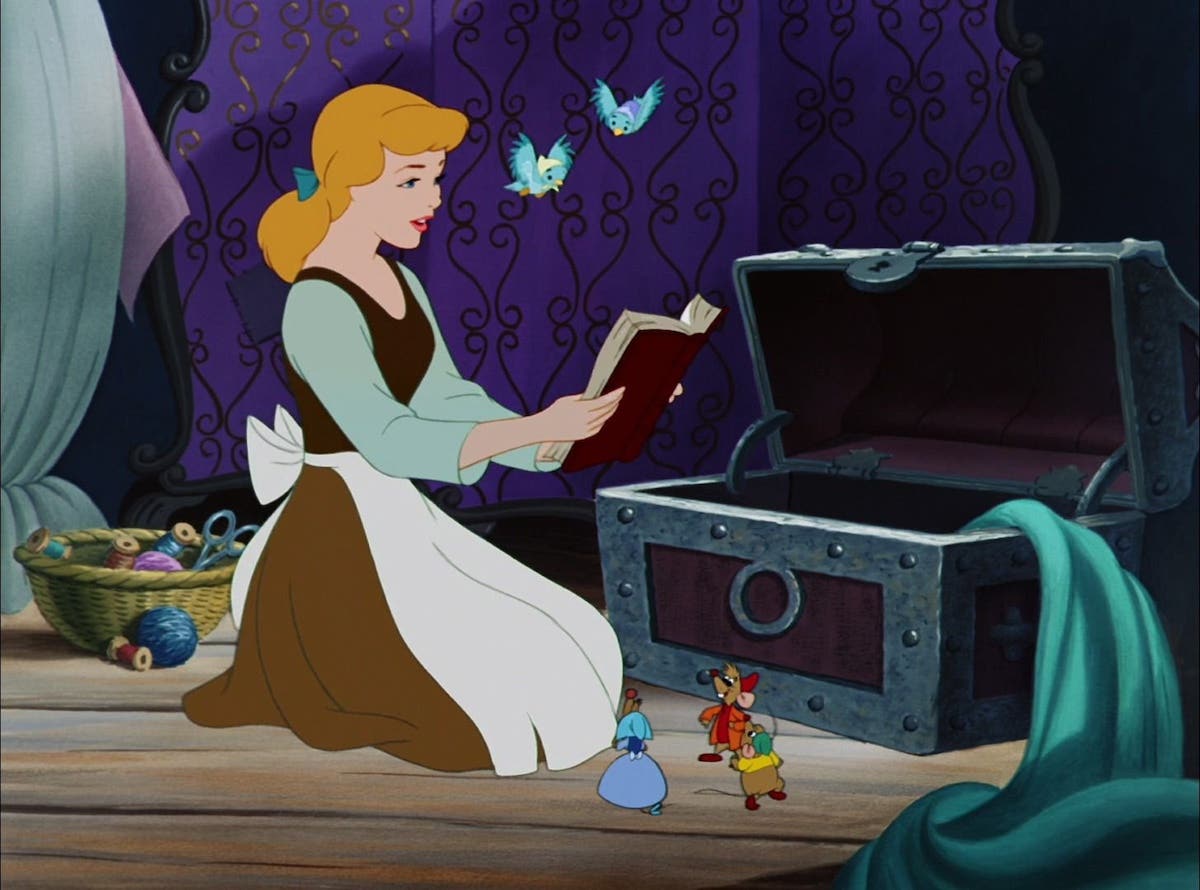BREAKING & ENTERING: Good Enough Writing
Is your script “good enough” or is it ready to go out into the world? Barri Evins’ pointers on pushing past good enough writing to make your work impressive.
A producer who’s sold to all the majors, Barri Evins created Big Ideas to give aspiring screenwriters what it takes to break into the business by sharing methods she uses with professional writers. Sign up for Barri’s newsletter and follow her on Twitter @BigBigIdeas.
A dear friend of mine and her husband were screenwriting partners. She told me that they would print out the other person’s latest draft and then make handwritten notes. As partners in their personal and professional lives, they developed a short hand. Their favorite was the abbreviation “NSB.” This note in the margin stood for “Needs Something Better.”
I’ve always loved that succinct note. While there’s not a lot of direction, it points to a problem that is up to the writer to solve.
Aspiring writers, downtrodden from cranking out draft after draft, often wonder when their material is “good enough.” Good enough writing to enter into a contest, send out queries, or submit to an agent or manager.
While I can sympathize with the burning desire to cross the finish line, this attitude is more dangerous than pistols at twenty paces or arguing politics online. In the real world, good enough writing gets you nowhere. Worse still, if industry professionals see it, you can do damage to your reputation and your career.
As long as your script needs something better, good enough writing doesn’t get you across the finish line.
Are We There?
A favorite childhood whine of my siblings and I, from the days in the back of the station wagon, and a refrain that has driven parents mad since shortly after the invention of the motorcar, “Are we there yet?” epitomizes our eagerness to get to our destination.
When the desire to reach the goal keeps you driving forward, it is a useful part of the process. It can be a powerful motivator.
When that yearning encourages you to take shortcuts, it can actually lead to a lengthier journey. You might get thrown off track. Or even get lost and miss your destination completely.
Is It Soup Yet?
Another #amdatingmyself refrain from a once popular commercial featuring an impatient kid and the hurry up attitude of instant Cup-A-Soup was, “Is it soup yet?” Soup created from powder and hot water is no match for the homemade kind that sits on the stove for hours, allowing rich flavors to develop.
Strong skills take much time and practice to develop. Powerful storytelling requires clear vision, exacting planning, and thoughtful decision-making, so that every detail supports the big picture. Successful screenwriting is a long, slow process.
Fight the tendency to rush. Stay focused on creating a truly satisfying screenplay.
Pushing Past Good Enough Writing
You’ve finished a draft of your script! You want to shout it from the rooftops and bask in the roar of applause.
But without even reading your script, I can tell you that it may be “good enough,” possibly even “good,” but not ready to go out into the world. I don’t have to rely on my psychic abilities to feel confident in this prediction, but from decades of experience that have shown me that even pro writing has room for refinement.
The grim truth is that no matter how much work you’ve put in, your script still needs something better. Until you have outside opinions, you can’t ensure that your script is doing its job – communicating exactly what you intend to the reader.
As the creator, you are simply too close to see it.
Your brain is the culprit here. It knows your characters inside and out. Your mind fleshes out visuals and fills in story gaps. It even “fixes” typos:
The challenge is to trick your brain into not fooling you. Here are five steps to pushing past good enough writing and take your script to the next level:
- Walk away from the keyboard. When you think you are “done,” pause. Take a break. Put the script aside and don’t even think about it. You need to attempt to get some objectivity on something that is nearly impossible to be objective about. It might take a week or a month, but hopefully some time away from the story – great time to work on drumming up new ideas! – will help you gain some perspective. Now rewrite.
- Get it on paper. I once thought that I would never be able to write creatively on a computer. Yes, #amdatingmyself, this was the dark ages. I longed for pen and paper. Now, while I can write on computer, I would never rely on editing on the screen beyond a first pass. Print it out. Read it. Write all over that paper. Now rewrite.
- Read it aloud. Not to be simplistic, but this is a great way to really hear your work. Rather than the voice in your head, you hear your actual voice. In reading out loud, words are processed by the brain, come out your mouth, travel to your ear and then into you brain to be processed again. Trust me, it is a new perspective. To thwart that pesky big brain of yours, try reading it backwards – scene by scene – lest you get too caught up in your story. Table reads with actors are also helpful. Be sure to tape the session so you can listen again. Now rewrite.
- Find fresh eyes. I hope all writers have some trusted colleagues who read for them, and who you read for in return. You need an inside cadre of writers whose opinions you can trust. Two caveats: First, be sure your readers give you input as to what is working and what is not It’s all too easy to point out problems, but writers need to know what works, in terms of writing and story. As a producer and a consultant, I always point out the positives. Second, beware the writer who offers a plethora of creative solutions to story problems. A suggestion can be helpful to spark your creative process or illuminate options. Some writers, however, get carried away and wind up envisioning their version of story. You need their insight to tell the best possible version of your story. After you have accumulated several sets of feedback, review the notes, look for recurring criticisms, and evaluate the value of the notes in terms of strengthening the story. Stuck with conflicting notes? Welcome to the wonderful life of a writer! You will find this throughout your career. Read the seven steps to coping with conflicting notes. Now rewrite.
- Pay for pro feedback. No one is going to have a more experienced and objective eye than a professional. They’ve read thousands of scripts. They’ve given notes in a range of genres to writers from a variety of levels of experience. It may pinch your pocketbook, but it is well worth it. Find someone reputable – another area where you should turn to your writing buddies for input. Contests may be another source of pro feedback, although without the benefit of interacting with the reader. Get the inside scoop on what other writers think about contests that offer feedback at moviebytes.com by checking out the user comments.
We’re all eager to cross the finish line, but when it comes to writing, the race seldom goes to the fleet of foot, but to the long distance runner.
It takes stamina and determination to push past good enough writing, but it is well worth it to elevate your writing and your storytelling.
- Read more articles by Barri Evins
- How To Write An Unforgettable Scene
- Why You Should Be In A Writers Group Now!
A Pro Screenwriter’s Keys to Writing a Page Turner
How to Weight Your Writing for Better Readability
How to Evaluate What You Write in Terms of Your Objectives
Barri Evins draws on decades of industry experience to give writers practical advice on elevating their craft and advancing their career. Her next SCREENWRITING ELEVATED online seminar with 7 monthly sessions plus mentorship will be announced in 2025. Breaking & Entering is peppered with real life anecdotes – good, bad, and hilarious – as stories are the greatest teacher. A working film producer and longtime industry executive, culminating in President of Production for Debra Hill, Barri developed, packaged, and sold projects to Warners, Universal, Disney, Nickelodeon, New Line, and HBO. Known for her keen eye for up and coming talent and spotting engaging ideas that became successful stories, Barri also worked extensively with A-List writers and directors. As a writer, she co-wrote a treatment sold in a preemptive six-figure deal to Warners, and a Fox Family project. As a teacher and consultant, Barri enables writers to achieve their vision for their stories and succeed in getting industry attention through innovative seminars, interactive consultations, and empowering mentorship. Follow her on Facebook or join her newsletter. Explore her Big Ideas website, to find out about consultations and seminars. And check out her blog, which includes the wit and wisdom of her pal, Dr. Paige Turner. See Barri in action on YouTube. Instagram: @bigbigideas X: @bigbigideas







